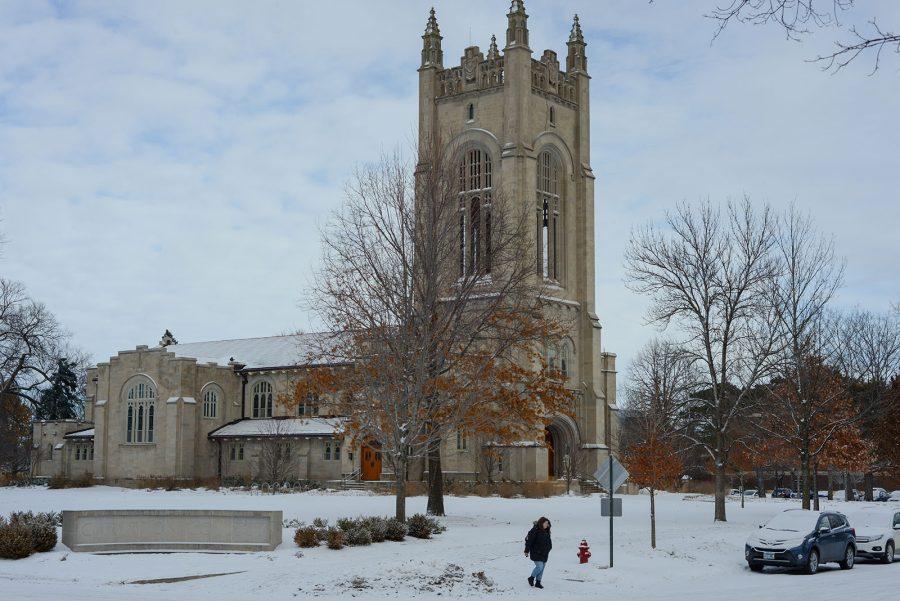On Tuesday, March 3, Carleton students headed to the polls to vote in the Minnesota presidential primary election. The Super Tuesday elections, including Minnesota’s, included a narrowed field of Democratic Party candidates after Pete Buttigieg and Amy Klobuchar suspended their campaigns earlier in the week. The national race tightened to a two-man face-off between former vice president Joe Biden and Sen. Bernie Sanders, with Sen. Elizabeth Warren, former New York mayor Mike Bloomberg, and Rep. Tulsi Gabbard trailing behind.
If the election had happened at Carleton, the results would likely look quite different than they do at the moment. In general, Carleton students lean further toward the progressive left wing than the rest of Minnesota and the country. Among Carleton students surveyed in an exit poll at First United Church of Christ, where the majority of students cast their votes, Warren polled much higher than in the national election, gaining the support of 33 percent of respondents. Sanders won a narrow majority of Carleton students’ votes with 51 percent while Biden managed just 14 percent.
Though they are usually actively organizing campaign events during election seasons, CarlDems has held off on supporting any one candidate this early on as a matter of club policy. “We generally don’t endorse because we want to make sure that our club is open to all people who agree with the Democratic Party,” said Siena Leone-Getten ’21, president of CarlDems. Their efforts as a club have been focused mainly on voter education and registration, holding debate-watch parties and registration events throughout the term. Their goal, Leone-Getten said, is to get as many Carleton students ready and excited to participate in the election process as possible, no matter which candidate they support.
With CarlDems saving their push to the polls for the general election, campaigning on campus has mostly been conducted by smaller student groups, such as the Young Democratic Socialists of America, who have thrown their weight behind Sanders as their candidate of choice.
The club has orchestrated campus door-knocking and tabling events and canvassed in the Northfield community.
Efforts by student supporters of Bernie Sanders have been significant enough that Rosemary Wonnell ’21 was sitting in Sayles the Sunday before the election, an array of Sanders campaign materials on the table before her because she had meant to go into town to campaign, only to find that all of Northfield had already been canvassed.
Of course, that was good news for Wonnell, who wants to see the man she called an “authentic figure, not making empty promises” in the Oval Office.
Some students, such as Owen Yager ’20, are skeptical of the messages of the far-left candidates that have most of Carleton’s votes. Yager said, “while I agree with a lot of the stances that Sanders puts forward, I am really, really leery of a populist movement that alienates people.” He saw similarities between the strategies of Sanders and Trump, which solidified his conviction that Buttigieg was the right candidate for him.
Since Buttigieg quit, Yager considers Biden as the next best option. “Really what it comes down to is a liberal agenda that is more moderate and more conversation-building than radical and populist and will catalyze a reactionary effect,” he said.
Despite the strong allegiances that Carleton students have to particular candidates at this point in the race, a common thread that they added to their reasons for supporting one candidate over another is that their main goal as Democrats is to keep President Trump from winning another term. Leone-Getten said that once there is a Democratic nominee, “we’ll be able to unite behind them” and kick CarlDems’ campaign efforts into high gear, as well as promote more local candidates.
Yager said that if Sanders wins the nomination, he will do everything he can to help him get elected.
“Even if we disagree on the degree to which action should take place on these issues, we all are voting for the same issues,” he said. “We’re voting for better healthcare in the public sector, we’re voting for better education, we’re voting for higher tax policies, and we’re voting for a party with a more inclusive message. That’s what I believe America is at its best. It’s a nation of radical inclusivity and hope, not border










